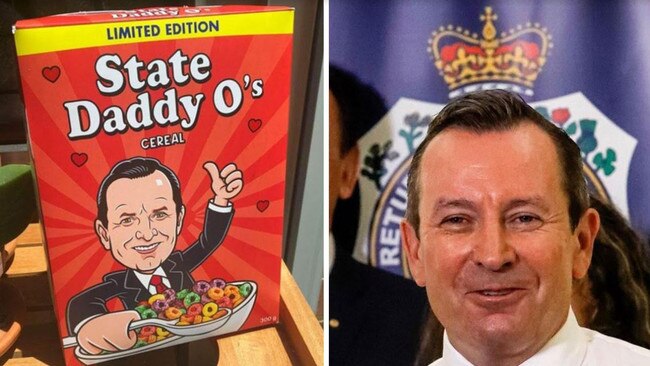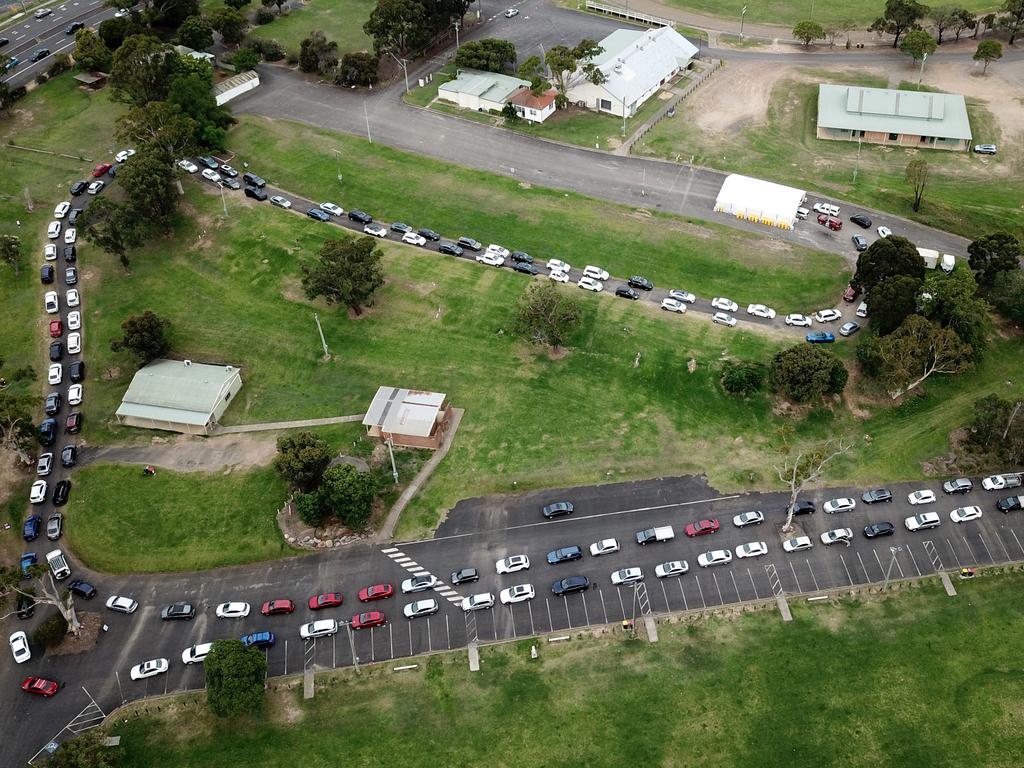A national strategy to deal with Omicron and carry on ... minus Western Australia

After recently advising that the interval between second jabs and booster shots should be reduced from six months to five, the Australian Technical Advisory Group on Immunisation will consider and advise governments on whether the interval should be reduced further given the spread of the Omicron variant.
To facilitate the booster rollout across the summer holidays, Mr Morrison announced an increase in the rebate payments to GPs and pharmacies by $10 a jab.
As with the close management of earlier Covid variants, state and territory governments will be in charge of much of the detail. True to form, West Australian Premier Mark McGowan spoke shortly after the meeting to further galvanise WA’s border against the rest of the nation. From 12.01am on Boxing Day, he announced, WA would impose a hard border between itself and Tasmania and the Northern Territory. Travellers from both jurisdictions, along with those from the rest of the nation, would not be allowed in, apart from approved travellers. “There will be very few people seeking to come in,” he said, in an admission fit for a hermit kingdom leader.
Mr McGowan also made WA the first state to make booster shots mandatory in professions and workplaces already covered by jab mandates.
States such as WA, Queensland, South Australia and Tasmania need to take a more reasonable approach to testing rules, which demand travellers heading their way have a PCR test for Covid-19 no more than 72 hours before arriving. With testing centres overwhelmed, especially in NSW, Victoria and the ACT, it makes no sense that individuals being tested because they are symptomatic or are close contacts of people diagnosed with Covid be forced to wait for hours simply to be tested to get on a plane. As Professor Kelly said, those getting tested wait many hours and may not get a result for three days. The reliance on testing for domestic travel, he said, was “interfering with one of the few things we’ve got to prevent against more cases”. National cabinet agreed to take advice from the Australian Health Protection Principal Committee about abolishing PCR tests to enter states for travel to avoid using up testing resources. While insisting that the requirements remain in place for now, Queensland Premier Annastacia Palaszczuk is considering relaxing requirements by allowing rapid antigen tests from next month. That would be an important step forward given the long queues for testing and the demand from interstate visitors to holiday in Queensland in winter as well as summer.
Mr Morrison also is considering ramping up the role of rapid antigen testing in Australia after the US committed to making 500 million at-home tests available. The tests, which are self-administered using a nasal swab or saliva sample, are easily performed at home and produce results within 20 minutes. According to the Therapeutic Goods Administration, such home kits are most accurate when used to test individuals with Covid symptoms. In the case of positive results, patients are advised to seek PCR testing. Rapid antigen tests should have a useful role as Australians become accustomed to living with Covid-19.
Other practical steps that emerged from national cabinet included re-establishing vaccine hubs run by the states and territories, and agreement on the need for a uniform definition across the country of close and casual contacts. Given that thousands of people are being forced into isolation after coming into contact with positive cases, such a definition is needed, and it will be decided in the next fortnight by the AHPPC expert panel, chaired by Professor Kelly and which includes state and territory health officers. The decision to find a uniform definition was welcomed by Business Council of Australia chief Jennifer Westacott. If the nation loses its nerve and again pulls up the drawbridge, growth would be restricted and recovery impeded, she writes on these pages. Mr Morrison has made it clear that the way forward is a robust, sensible and consistent plan to deal with Omicron and any subsequent variants.






Scott Morrison’s message after national cabinet on Wednesday about Australia’s handling of the Covid-19 Omicron variant struck the right balance between pragmatism and optimism. Importantly, the Prime Minister treated Australians as grown-ups, urging them to practise sensible precautions – including safe distancing and hand washing – as they do with sun protection in summer. Despite the advice of chief medical officer Paul Kelly, Mr Morrison did not mandate mask wearing indoors but “highly recommended” it and put on his own mask to walk back into Parliament House after the press conference. The more nannyish jurisdictions already have made masks compulsory. Queensland has imposed mask mandates in recent days for shopping centres, cinemas, theatres and hospitality staff. Mr Morrison’s most important advice related to booster shots, now being given at the rate of 100 a minute. More than 50 per cent of eligible Australians, about 1.7 million people, already have been injected for the third time. Also importantly, Mr Morrison made it clear that “we are not locking down”.